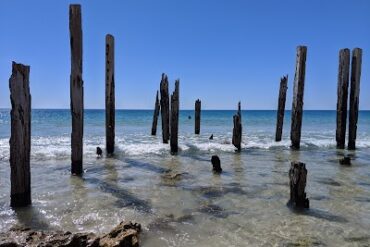Embracing Wh?nau: Understanding the M?ori Word for Family
Hello, lovely folks! Are you on a wonderful quest to learn about different cultures and their unique perspectives on what family means? Well, you’re in for a treat! Today, we’re going to dive into the heartwarming world of M?ori culture and unravel the beautiful tapestry woven around the term ‘wh?nau’, the M?ori word for family. Join us on this cultural exploration that promises to enrich your understanding and appreciation of family bonds as viewed through the M?ori lens.
The Essence of ‘Wh?nau’
In the M?ori language, which is known as ‘te reo M?ori,’ family is referred to as ‘wh?nau’. This term goes beyond the immediate family to encompass extended relatives, community connections, and sometimes even close friends. ‘Wh?nau’ is a foundational pillar of M?ori society, highlighting an inclusive and collective approach to relationships.
For parents striving to teach their children about diverse cultures and the significance of kinship bonds, introducing them to the concept of ‘wh?nau’ can be a wonderful way to broaden their horizons. It’s a term that encapsulates love, support, sharing responsibilities, and nurturing each other’s growth.
The Roots of Wh?nau: A Closer Look at the M?ori Family Structure
Understanding ‘wh?nau’ requires a deep appreciation for its roots. Traditionally, M?ori family structure is built on a communal way of living. The idea is that one is never alone; you’re constantly supported by a network of family members, each playing a vital role in the wider community.
The M?ori regard ‘whakapapa’ as their genealogy or lineage, another central concept closely tied to ‘wh?nau’. Knowledge of one’s ‘whakapapa’ is cherished as it establishes connections and relationships among people, land, and the spiritual realm. Without ‘whakapapa’, ‘wh?nau’ lacks its full context, as it’s not merely about who we live with, but it’s also about where we come from and how we are interconnected.
Welcoming You into the ‘Wh?nau’
Now that you’ve got a taste of the overarching principles of ‘wh?nau’, let’s delve deeper into how you can embrace this concept and maybe even incorporate it into your own family life. Through the rest of this guide, we will cover the following enlightening aspects:
- The Extended Family: Exploring the roles and bonds within a M?ori ‘wh?nau’, including the impact of grandparents, aunts, uncles, and cousins.
- M?ori Family Values: Discovering key values such as manaakitanga (hospitality), kaitiakitanga (guardianship), and aroha (love) that define family interactions.
- Celebrating Family Traditions: The significance of rituals, celebrations, and gatherings, and how they strengthen ‘wh?nau’ bonds.
- Modern Dynamics: How the concept of ‘wh?nau’ adapts and thrives in today’s world, including urban settings and mixed-cultural families.
- Language and Identity: The role of te reo M?ori in family life and how learning the language can enrich your understanding of M?ori culture and identity.
- Storytelling and Legacy: Stories passed down through generations that encapsulate the essence of ‘wh?nau’ and its influence on personal identity and collective history.
Whether you’re a parent seeking to teach these precious values to your children, or simply a curious soul yearning to understand more about the beautiful M?ori culture, this guide is tailored just for you. So let’s continue this journey together, embracing and learning from the M?ori perspective of family. Are you ready to see the world through the lens of ‘wh?nau’? Let’s dive in!
Embarking on this cultural exploration is not just an academic exercise; it’s a heartwarming adventure into the understanding that family isn’t constrained by biology alone. It’s a choice to unite, care, and share in life’s journey with those around us. Stay tuned as we unfold more layers of ‘wh?nau’—celebrating its rich heritage and timeless relevance in shaping thriving communities.

Five Key Insights for Parents Preparing to Teach Their Kids About ‘Wh?nau’
1. Understanding the Scope of ‘Wh?nau’
First and foremost, parents should grasp the extent of what ‘wh?nau’ encompasses. It’s vital to convey to children that ‘wh?nau’ includes not only the nuclear family but also a wider network of relations and community members, whether they’re related by blood or through shared experiences and support. This wider concept of family can be a powerful lesson in inclusivity and community support.
2. ‘Wh?nau’ Values as Life Lessons
Teaching kids about the values that ‘wh?nau’ represents is key. These values include ‘manaakitanga’ (caring and hospitality towards others), ‘kaitiakitanga’ (stewardship of the environment), and ‘aroha’ (love and compassion). Instilling these principles from a M?ori worldview can provide a strong moral compass and a sense of responsibility for their family and wider community.
3. The Importance of Intergenerational Connections
Parents should encourage intergenerational interaction by emphasizing the role of elders and younger members within ‘wh?nau’. Sharing stories, wisdom, and maintaining a lineage of knowledge helps to foster a sense of belonging and appreciation for cultural heritage among children. The concept of ‘tuakana-teina’, where an older sibling or cousin guides and teaches the younger one, is an excellent example of intergenerational sharing within ‘wh?nau’.
4. Integrating ‘Wh?nau’ into Daily Life
Incorporating ‘wh?nau’ into everyday life can be as simple as eating together, working on shared goals, or supporting each other’s endeavors. Parents should look for opportunities to involve extended family in regular activities, encouraging a ‘wh?nau’ approach to daily living that mirrors traditional M?ori communal living.
5. Celebrating ‘Wh?nau’ Through Cultural Practices
Engaging in M?ori cultural practices, such as attending a ‘marae’ (communal meeting ground), participating in ‘waiata’ (songs), and learning traditional stories, can deepen the understanding of ‘wh?nau’. Parents can seek out cultural events, workshops, or online resources to help their children experience ‘wh?nau’ in culturally authentic ways.
Let’s continue to explore further insights into ‘wh?nau’ and the profound influence it has on strengthening connections and nurturing a collective spirit. Remember, by learning and respecting this profound concept, you are not only enriching your family’s life but also contributing to the vibrancy of a living culture. As we forge ahead with open hearts and minds, we find that embracing ‘wh?nau’ is a joyful affirmation of the universal values of kinship and togetherness.
Celebrating Wh?nau through Te Reo and Traditions
Bringing the M?ori language, ‘te reo’, into your home can be a powerful way to connect with ‘wh?nau’. From greeting each other with ‘Kia ora’ (Hello) to using ‘ka kite an?’ (See you later), every phrase enriches the connection to M?ori culture. Beyond language, engaging in ‘h?ng?’ (traditional M?ori feast), storytelling, and recognizing significant occasions together helps solidify these values within the family construct.
Through this exploration of ‘wh?nau’, let us recognize and celebrate the incredible wealth of knowledge and connection it offers. By undertaking this cultural journey, parents can bestow upon their children a legacy of compassion, shared responsibility, and enduring bonds that will not only benefit their personal growth but also contribute to a more understanding and inclusive society.
Bridging Wh?nau with the Modern World
Despite the fast pace of modern life, the principles of ‘wh?nau’ remain as relevant as ever. In our increasingly interconnected world, these values lend themselves to creating supportive networks that can help navigate the challenges of today. Encouraging children to see their friends and schoolmates as part of an extended ‘wh?nau’ reinforces the valuable lesson that together, as a community, we are stronger and more resilient.
The journey into the realm of ‘wh?nau’ is both enlightening and heartening. It reminds us that the notion of family can transcend traditional boundaries to forge a community that cares for each other in a profound and enduring way. As we embark on this path, let the spirit of ‘wh?nau’ guide us toward a more compassionate, connected, and culturally rich life. Embrace the journey, cherish the connections, and let ‘wh?nau’ illuminate the way forward for you and your children.
See more great Things to Do with Kids in New Zealand here. For more information see here
Disclaimer
The articles available via our website provide general information only and we strongly urge readers to exercise caution and conduct their own thorough research and fact-checking. The information presented should not be taken as absolute truth, and, to the maximum extent permitted by law, we will not be held liable for any inaccuracies or errors in the content. It is essential for individuals to independently verify and validate the information before making any decisions or taking any actions based on the articles.




